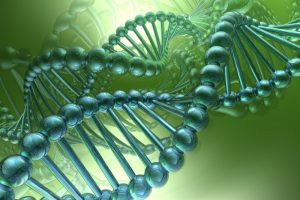 Your DNA is like a book that contains highly detailed information about you. It reveals where your ancestors came from, and it determines the color of your eyes and how tall you grow. Commercial companies are starting to utilize the power of DNA to make consumers believe that a simple test can tell them whether or not they’ll get cavities or gum disease. But the question remains — are these tests really useful? What is the best way to know if you are at risk for oral health problems? Your dentist weighs in on this important subject.
Your DNA is like a book that contains highly detailed information about you. It reveals where your ancestors came from, and it determines the color of your eyes and how tall you grow. Commercial companies are starting to utilize the power of DNA to make consumers believe that a simple test can tell them whether or not they’ll get cavities or gum disease. But the question remains — are these tests really useful? What is the best way to know if you are at risk for oral health problems? Your dentist weighs in on this important subject.
The Limitations of DNA
Certain genetic markers are associated with specific disease. For example, you might be predisposed to obesity, alcoholism, diabetes, or even dental problems. However, just because your genes indicate that you are more susceptible to a certain condition doesn’t mean you are doomed to suffer from that health problem. Someone whose parents and grandparents had type II diabetes might be able to prevent the problem via diet and exercise. A person whose genes indicate that they might become an alcoholic doesn’t have to end up with an addiction problem.
The same thing is true of genes that indicate your vulnerability to oral health problems. Even if you have genetic markers for gum disease or cavities, you shouldn’t take that to mean that you can’t escape a suffering smile.
The Most Important Risk Factors
Genes play a role in your oral health, but other factors can have a much bigger impact on how your teeth and gums fare throughout your lifetime. For example, the following habits will greatly increase your risk of developing problems in your mouth:
- Heavy drinking
- Heavy alcohol consumption
- Not brushing twice a day
- Not flossing regularly
- Consuming large amounts of sugary or acidic foods
By avoiding the above lifestyle choices, you can potentially win the battle against your DNA and have a healthy mouth for life!
Keep an Eye on Your Oral Health
Regardless of whether you have a genetic predisposition to certain problems, it’s vital that you monitor your oral health. Your dentist is eager to help you do this. When you go in for regular cleanings and checkups, your dentist can tell you if there are early signs of any problems, such as gum disease, tooth decay, or oral cancer. By catching these issues early, you minimize the chances that you’ll suffer from their long-term consequences.
Your DNA makes you, you — but it doesn’t have to sentence you to poor oral health. By keeping up good habits and staying in touch with your dentist, you can keep your gorgeous smile in amazing shape!
About Painesville Dental Group
For nearly half a century, the Painesville Dental Group has been helping folks in the community to achieve beautiful, functional smiles. They want to help you take control of your oral health. If you would like to learn more about how to keep your teeth and gums problem-free, please contact us at 440-352-3223.
